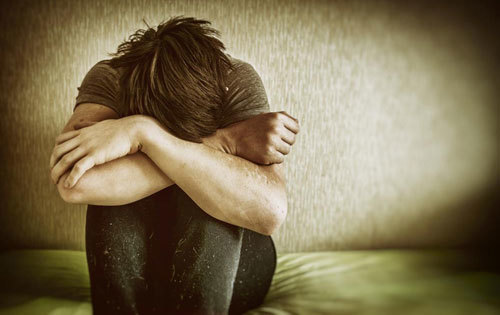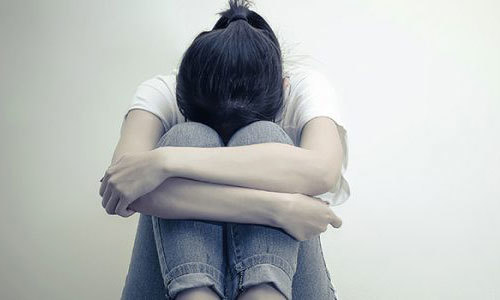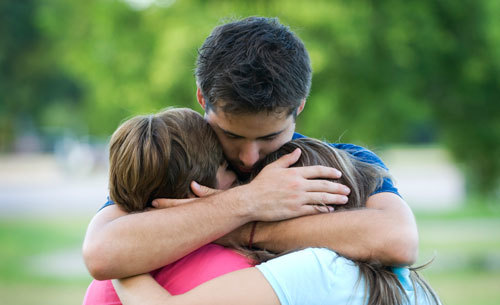There are no words for the pain of losing someone you care about and love. Death is not something we are prepared to deal with, though the aftermath of it, the grief, which comes after, can last for a lifetime.
During this time, do you not feel pressure to get it together or put on a face for others? It can be hard because so many people are concerned about you. Experience your grief and try to cope with it as it comes and goes. That is the thing about grief, you can not predict it, and you never know when it is going to rise up.
 There are five different stages of grief which you may experience.Courtesy of Odyssey
There are five different stages of grief which you may experience.Courtesy of Odyssey
According to Elisabeth Kübler-Ross (There is no order for experiencing them) there are 5 stages of grief and loss:
- Denial
- Anger
- Bargaining
- Depression
- Acceptance
Though, be mindful of the fact that all people grieve differently. While some people will wear their emotions openly, other people will take the loss inward and deal with it alone. For some, it is really hard to talk about it, and this comes with acceptance. The closer you get there, the more likely you are to honor their memory. Never judge how a person deals with their loss, and remember that every person is unique to their experiences and how they react to them.
1. Denial & Isolation
This step highlights a person’s inability to accept what has occurred. The first reaction here is to deny that anything has taken place. “This isn’t happening, this can’t be happening,” people often think this to themselves and tell themselves what they need to hear in order to cope. It is not abnormal to rationalize overwhelming emotions. It is a defense mechanism that tones down the intensity of the loss. We block out what we can’t deal with and hide from the facts. This is a short-term reaction that takes us through the first motion of pain.
 Grief can make us shut down entirely.
Grief can make us shut down entirely.
2. Anger
We are not ready to deal with our emotions and turn to anger and frustration. The intensity of our emotions come from our vulnerable core, they become redirected and are expressed as anger. The anger can be projected on a variety of people in a variety of situations. Anger directly may be targeted at our dying or deceased loved one. We know the person is not to be blamed, but are simply feeling so much and don’t know where to place our emotions. It is possible for us to resent the person for causing us pain because they have left us.
 Your body language says a lot about how you feel.
Your body language says a lot about how you feel.
3. Bargaining
It is a normal reaction to fight feelings of helplessness and vulnerability with the need to gain control.
When you are barging you are thinking things like:
If only we came to the hospital sooner…
If only we listened to the doctor…
If only we had tried harder…
This is our way of making sense of what happened and looking to place blame. Do not hesitate to ask your doctor to give you extra time or to explain the details of your loved one’s illness. Arrange an appointment or ask that they telephone you at the end of his day. Ask for clear answers to your questions regarding medical diagnosis and treatment. Understand the options available to you. Take your time.
 Talking about it can be helpful even when it is hard.
Talking about it can be helpful even when it is hard.
4. Depression
There are two forms of depression, which are associated with mourning. One is practical. We worry about the costs and burial. We worry that, in our grief, we have spent less time with others that need us. During this phase, we make require some helpful cooperation and a few kind words.
The second type of depression is more low-key and is more private. It is our quiet preparation to separate and to say goodbye to our loved ones. Sometimes all we really need is comfort, but even that can’t stop the intense emotions.
 Grief brings up all kinds of intense emotions.
Grief brings up all kinds of intense emotions.
5. Acceptance
Not everyone reaches this place. Some people never accept what has been taken from them. Anger and denial can be hard to see past. This stage is associated with being withdrawal and calm. It is not a period of happiness and must be distinguished from depression, but it is a form of radical acceptance. The idea that you don’t have to like or love something to accept it for yourself.
Coping with loss is a very personal and individual experience and no one can fathom the intricate emotions that you are enduring. People can be supportive and try to comfort you through the process. Allow yourself to feel the grief as it washes over you. Fighting it only will prolong the natural process of healing.
 Supporting and loving each other through the loss is key.
Supporting and loving each other through the loss is key.
Remember that grieving is very much a personal process and it has no time boundaries, nor is there a “right” way to do it. Don’t assume someone is not sad simply because they aren’t crying all the time. People cope in different ways through different strategies. As you can tell you will probably go through a variety of stages, and that is okay. Don’t get upset with yourself if you’re still feeling down, take as much time as you need and know that you can be triggered at any time. Don’t hold back your emotions, feel them and try to talk to people if that helps. Sharing memories and stories, or expressing thoughts, and remembering the loved one can be quite therapeutic.
If you are feeling very depressed and your grief persists for a long period of time, go see your doctor. Sometimes we needed to be treated for depression that is caused by situations in our life.
Have Your Say
Have you experienced any of the stages of grief? Has anything helped you in your time of loss?

































